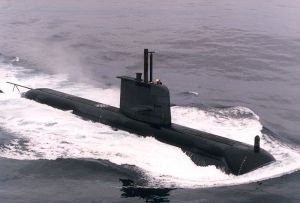Japan Loses Out to France in Major Submarine Contract with Australia: US Reliance
Noriko Watanabe and Lee Jay Walker
Modern Tokyo Times
The government of Prime Minister Shinzo Abe is waking up to the geopolitical reality that over-reliance on America isn’t always positive. In this sense, it appears reasonable for Australia to choose France over Japan and Germany respectively. After all, the role of the armed forces of America and military technology from this nation in the body politic of Japan is visible. Therefore, this reality – and other essential factors based on past experience gained by France (French companies) – meant that it was always going to be an uphill struggle for Japan if the decision was purely military for Australia.
If Tony Abbot had remained the leader of Australia, then the close relationship between Abbot and Abe would have come into play. Given this reality, the final decision made by Australia is based on the current respective standing of the military export prowess of France, in huge comparison with the inexperience of Japan. Not only this, Australia by picking France for all the right reasons, can equally avoid any China-Japan entanglement.
Equally negative for Japan is the factor of America. After all, part of Japan’s military machinery is geared towards the geopolitical concerns of America. The same applies to the political arena and areas of military procurement. Therefore, despite it being known that President Obama favored the Japanese bid for Australia, it is clear that military, political and business elites in Australia looked at all the right independent and military factors. Indeed, under the prevailing military conditions then no point for Australia to bypass major companies from America and France, in respect to the Washington-centric political and military elites in Japan.
The defense contract secured by France is the largest-ever for Australia. Malcolm Turnbull, the Prime Minister of Australia, stressed that the contract rewarded to France was based on “Securing the future of Australia’s navy over decades to come.”
Not surprisingly, the BBC alludes to this fact by stating “The French bid received unanimous support from the various experts in the government’s competitive evaluation process, Defence Minister Marise Payne said.”
Turnbull also said that the French bid, “represented the capabilities best able to meet Australia’s unique needs.” This comment appears to be pointing at the independent reality of France. Likewise, France is known for being very innovative in the area of military technology and this reality can’t be currently stated about Japan.
Russia Today reports the contract given to a French company is “The largest naval public spending project in Australian history, worth some AU$50 billion ($38.5bn), has been awarded to a French company which will build 12 subs to replace and double the size of the Royal Australian Navy’s currently outdated submarine fleet.”
AP reports “The submarine contract is the latest in a series of high-profile defense deals signed by the French in the past year or so. 2015 saw the sale of 24 Rafale aircraft to Egypt, 36 fighter-bombers to India and a deal with Qatar for another couple dozen Rafales. France even managed to resell the two Mistrals to Egypt after the Moscow deal fell through.”
Japan also must become realistic because this nation is currently in a catch-up period compared with nations like France that have a long history in procuring major military contracts. Equally, the over-reliance on America in many geopolitical, political and military areas isn’t helping Japan. Therefore, Japan needs a more independent and innovative approach in this area while remaining close to America.
Nasdaq reports, “The Shortfin Barracuda design—offering stealth technology developed for French nuclear submarines—was chosen after a lengthy evaluation against rivals from Germany and Japan. The decision, announced by Australia’s Prime Minister Malcolm Turnbull on Tuesday, ended Japanese hopes of winning its first major arms deal since relaxing a post- World War II export ban.”
In the end, the decision by Australia is based on weighing up all essential angles. Therefore, with close technological military ties with America being strong and the geopolitical angle of France in the Indian Ocean and Pacific Islands (New Caledonia and French Polynesia) – along with France having state of the art military technology, then the writing was on the wall once the Abbot angle had disappeared.
Overall, Japan came up short based on the technology that was required by Australia, the China containment card being over-played by Japan, lack of military building outside of Japan, over-reliance on America and other related areas.
http://www.bbc.com/news/world-australia-36136628
http://www.nzherald.co.nz/business/news/article.cfm?c_id=3&objectid=11628874&ref=rss
http://www.bbc.com/news/world-australia-36136628
https://www.rt.com/news/340918-australia-submarines-contract-france/
Modern Tokyo News is part of the Modern Tokyo Times group
DONATIONS to SUPPORT MODERN TOKYO TIMES – please pay PayPal and DONATE to sawakoart@gmail.com
http://moderntokyotimes.com Modern Tokyo Times – International News and Japan News
http://sawandjay.com Modern Tokyo Times – Fashion
https://moderntokyonews.com Modern Tokyo News – Tokyo News and International News
http://global-security-news.com Global Security News – Geopolitics and Terrorism
PLEASE JOIN ON TWITTER
https://twitter.com/MTT_News Modern Tokyo Times
PLEASE JOIN ON FACEBOOK

